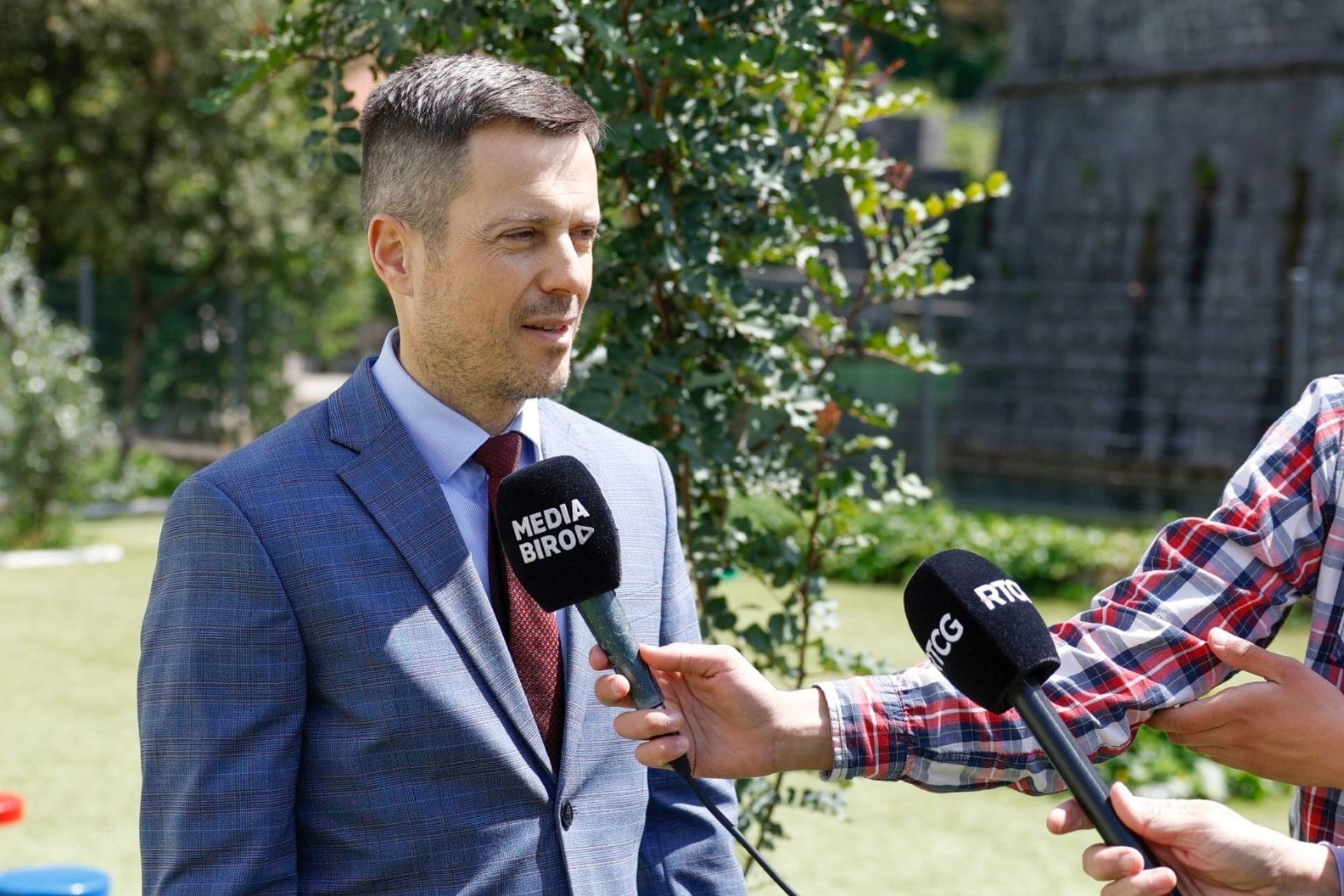Students of the primary school “Njegos” in Kotor will enjoy a completely reconstructed and energy-efficient school, thanks to the project “Promotion of Energy Efficiency in Public Buildings (PEEPB)” financed by KfW and the EU through loan and grants with a state contribution from Montenegro. The project worth 60 million euros is implemented by the Ministry of Energy and Mining of Montenegro.
The renovated school was visited by the Minister of Energy and Mining Sasa Mujovic and the Minister of Education, Science and Innovation Andjela Jaksic Stojanovic. In addition to the school in Kotor, in the first phase of the project, the school “25 maj” in Tuzi, as well as the Secondary Economic and Hospitality School in Niksic were also refurbished.
“This is a joint program of the two ministries. Our idea is to really make, what we often like to say, the school a warm home. On the other hand, we want to point out to students the importance of energy efficiency. I think that the age of primary school children is the “most fertile ground” to adopt some principles of energy efficiency,” Mujovic pointed out.
“This is a project implemented by the Ministry of Energy and Mining in cooperation with KfW Bank. In addition to this facility, in the previous phase a complete reconstruction of the School of Economics and Hospitality in Nikšić was carried out, as well as the Gymnasium “25 maj” in Tuzi. The value of the project for all three schools is 5.8 million euros. The value of completed works on the elementary school “Njegos” is 1.9 million euros,” said Jaksic Stojanovic.
“Germany is one of the main donors in Montenegro. So far, the Government of the Federal Republic of Germany has supported the country with 780 million euros. Montenegro is the first country in the Balkans where we implemented projects in the field of energy efficiency, our first experience and learning. We at the KfW are looking forward to the further development of the program “Promotion of Energy Efficiency in Public Buildings (PEEPB)” and we remain a reliable partner of the Montenegrin people and the Government,” said Zeljko Uljarevic from KfW.
In the previous two phases of the project, Montenegro reconstructed as many as 36 buildings. The total energy savings achieved amounted to 61 percent compared to the previous situation. Through such projects, Montenegro demonstrates its leadership position in the region when it comes to commitment to decarbonization and the Green Agenda. Montenegro is the only country in the Western Balkans that achieved the goal of reducing carbon dioxide emissions by 30 percent in 2015. As a result, a new goal of 35 percent by 2035 was defined.

